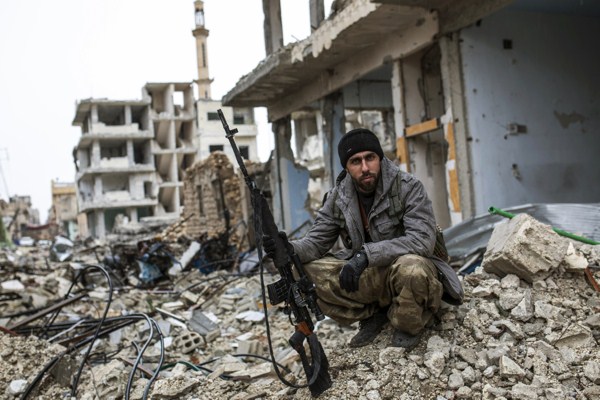“The media refused to see the Syrian revolt as anything other than the continuation of revolutions in Tunisia and Egypt, at a time of enthusiasm over the Arab Spring. Journalists didn’t understand the sectarian subtleties in Syria, or perhaps they didn’t want to understand.” That was Fabrice Balanche, a leading French scholar of Syria who specializes in political geography, in an eye-opening interview with the Carnegie Endowment’s Aron Lund last Friday. Balanche’s research mapping Syria’s uprising-turned-civil-war is mostly in French, as Lund noted, and so has only recently entered into English-language Syria analysis, which should be all the better for it.
Balanche has a deep knowledge of Syria’s demographics and its delicate, often messy ethnic makeup, which led to him raising alarms early on about the sectarian divisions intrinsic to the conflict that suggested a long, bloody road ahead. In doing so, some called him an apologist for President Bashar al-Assad’s regime. As he told Lund: “In 2011–2012, we suffered a type of intellectual McCarthyism on the Syrian question: if you said that Assad was not about to fall within three months, you would be suspected of being paid by the Syrian regime.”
But even amid the hopeful calls for peaceful protest that began in March 2011 and were soon repressed, the signs were there, given Syria’s socioeconomic troubles and the sectarian nature of the regime. A civil war “would quickly shatter Syria’s fragile sectarian coexistence, which had in the preceding years relied more and more on repression and less and less on the redistribution of Syria’s national wealth.”

